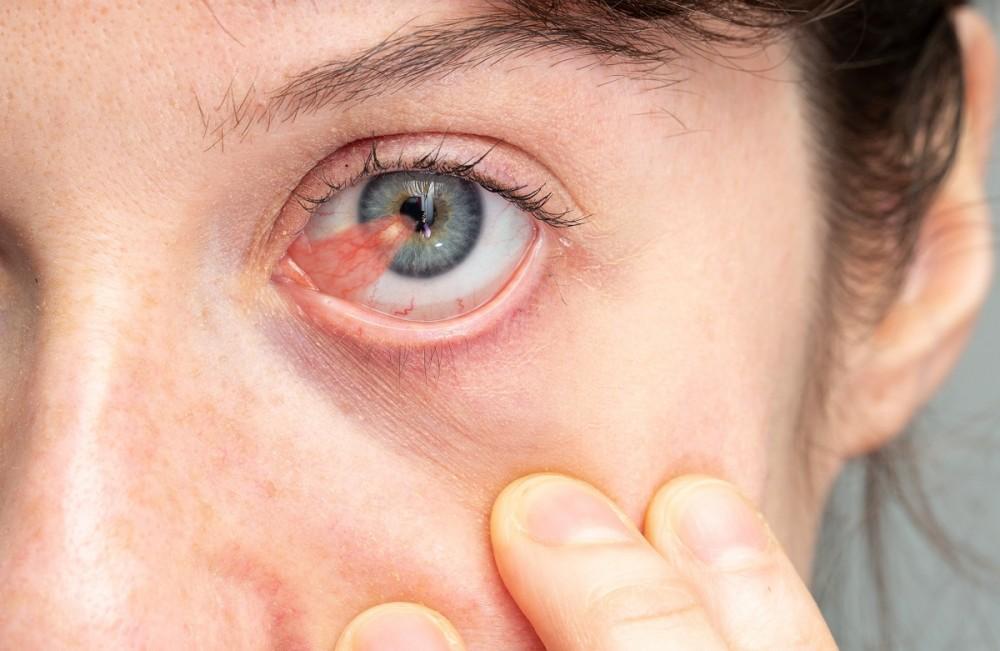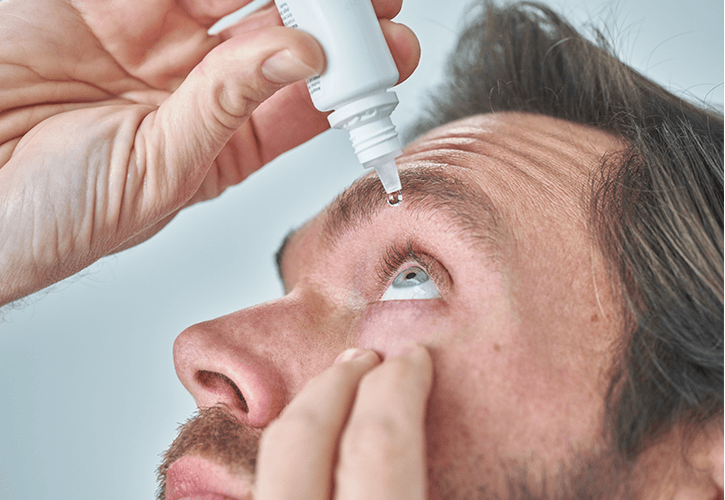PTERYGIUM
Pterygium can affect anyone, is a peculiar growth of tissue that typically appears on the conjunctiva,
the clear, thin membrane covering the white part of the eye (sclera). It can extend onto the cornea.
Causes
While the exact cause of pterygium remains uncertain, several factors are believed to contribute:
UV Exposure: Prolonged exposure to ultraviolet (UV) light, such as that from the sun, is considered a significant risk factor.
Environmental Factors: Dust, wind, and other environmental irritants can play a role in the development of pterygium.
Genetic Predisposition: Some individuals may be more genetically prone to developing pterygium.

Symptoms
Treatment
In many instances, pterygium may not necessitate treatment and can be managed with over-the-counter artificial tears to alleviate discomfort. However, if it causes severe symptoms, vision problems, or cosmetic concerns, treatment options may include: Eye Drops: Medicated eye drops can be prescribed to reduce inflammation and alleviate discomfort. Surgical Removal: Surgical removal of the pterygium may be considered when it interferes with vision or causes severe symptoms. This procedure is usually performed by an eye specialist and may involve a graft of tissue to prevent regrowth.

Prevention
Prevention is crucial when it comes to pterygium. Simple steps can help reduce the risk of its development:
UV Protection: Wearing sunglasses that block both UVA and UVB rays can protect your eyes from harmful sun exposure.
Eye Protection: Using protective eyewear in dusty or windy conditions can help prevent eye irritation.
Regular Eye Exams: Routine eye examinations can aid in early detection and management of pterygium.

Conclusion
Though pterygium may not be as well-known as some other eye conditions, it can impact the comfort and vision of those affected. Practicing preventive measures, such as UV protection and the use of eye drops, can substantially lower the risk of developing a pterygium. If you experience any eye-related symptoms, consult an eye care professional for an accurate diagnosis and appropriate treatment, ensuring the health and well-being of your eyes.


